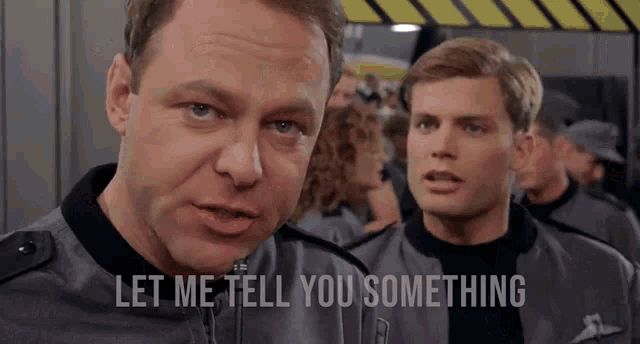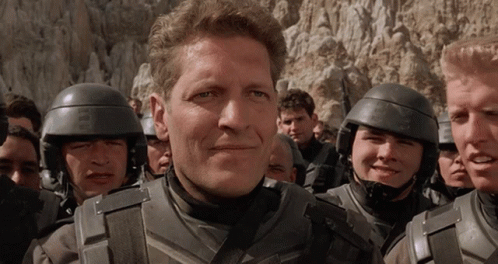The book rather takes civic duty to an extreme, in which you have to serve The State, and by extension The People, before you earn the right to choose your government. There's a certain (terrifying) logic to that and, as with the best speculative fiction, it examines the sociopolitical aspects of that.
To paraphrase Heinlein, "I wrote 'Starship Troopers' and they called me a fascist. I wrote 'Stranger in a strange Land' and they called me a communist. I'm a writer."
I wasn't making any kind of judgment about Heinlein. I was just observing that the movie and the book actually are looking at the same themes, just through very different lens.




